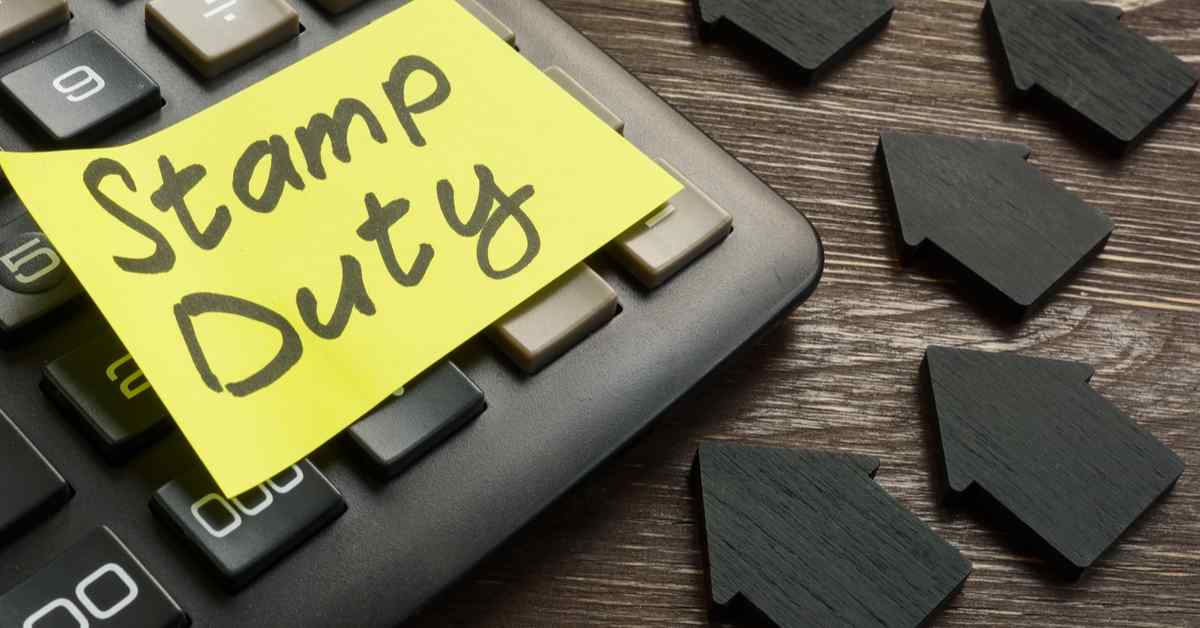Table of Contents
Quality Service Guarantee Or Painting Free

Get a rental agreement with doorstep delivery

Find the BEST deals and get unbelievable DISCOUNTS directly from builders!

5-Star rated painters, premium paints and services at the BEST PRICES!
Loved what you read? Share it with others!


Submit the Form to Unlock the Best Deals Today
Help us assist you better
Check Your Eligibility Instantly

Experience The NoBrokerHood Difference!
Set up a demo for the entire community
A Guide to Property Registration Fee and Stamp Duty in Tamil Nadu
Table of Contents
The stamp is one of the significant aspects that is taken into being while registering a property. The state government imposes stamp duty and registration charges at the time of property transactions. The value of a particular land varies from one state to another. Tamil Nadu is one such state that is known for its high stamp duty and plot registration charges. So, the property buyers should be ready to pay a handsome amount for registration and stamp duty in Tamil Nadu.
Stamp Duty in Tamil Nadu

We have already discussed that the stamp duty and plot registration charges in Tamil Nadu are pretty high along with the MODT charges in Tamil Nadu 2022
Now, let us look at the document charges for land registration in Tamil Nadu.
Quality Service Guarantee Or Painting Free

Get a rental agreement with doorstep delivery

Find the BEST deals and get unbelievable DISCOUNTS directly from builders!

5-Star rated painters, premium paints and services at the BEST PRICES!
Sale Deed Registration Charges in Tamilnadu
In the case of selling the property, the stamp duty charges in Tamil Nadu are 7% of the property’s market value. The registration fee for the same is 4% of the market value. If you have gifted or have received land as a gift, then the gift deed registration charges in TamilNadu remain the same, i.e., 7% and 4%.
Release Deed Stamp Duty in Tamilnadu
There are two kinds of release documents that you are charged for, i.e., one is among the family members, and the other is among the non-family members. In the case of release deed registration charges in TamilNadu among the family members, the stamp duty and registration fee are 1% of the market value; the maximum limit is Rs. 25,000/- on stamp duty and Rs. 4,000/- on plot registration. If the release deed is among the non-family members, then the stamp duty levied is 7%, and the registration fee is 1%.
Settlement Deed Stamp Duty in Tamilnadu
As per the settlement deed registration charges, Settlement Deed rules in Tamil Nadu in Tamilnadu is different for family and non-family members. If the family settlement deed stamp duty in TamilNadu is among family members, then the stamp duty in Tamil Nadu is 1% of the market value with a maximum limit of Rs. 25,000/-. The registration charge is also 1%, the maximum limit being Rs. 4,000/-. Apart from the family members, the settlement deed registration charges among outsiders have a stamp duty of 7% and a registration fee of 4% of the property’s market value.
Lease Deed Registration Charges in Tamilnadu
Lease agreement documents are of various kinds, and they need to be registered. The lease deed agreement's stamp duty and registration charge is 1% of the rent and fines. The maximum limit for the charges is Rs. 20,000/-. For leases up to 99 years, the registration fee remains 1%, and the stamp duty is 4% in addition to any rent or fine. For lease deeds beyond 99 years, the registration fee is again 1%, and the stamp duty increases to 7% in addition to advance or premium.
Stamp Duty for Power of Attorney in Tamilnadu
There are different stamp duty and registration fees for the power of attorney registration fees in TamilNadu. In case of a general power of attorney for the sale of immovable property, the stamp duty is Rs. 100/-. The registration fee is, however, higher, i.e., Rs. 1,000/-. In the case of selling a property under the general power of attorney, the stamp duty is Rs. 100/- and the registration fee is Rs. 50/-. The general stamp duty for power of attorney is 4% and the registration fee 1%, with a maximum limit of Rs. 10,000/-.
Stamp Duty for Partition Deed in Tamilnadu
There are stamp duty and registration fees for partition in Tamil Nadu. In a split of property among family members, the stamp duty and plot registration charge are 1% of the property’s market value. The maximum limit of both is Rs. 25,000/- and Rs. 4,000/- respectively under every unit of partition. In the case of a partition deed stamp duty in TamilNadu among people who aren’t related, the stamp duty is 4%, and the registration charge is 1% of the market value of individual shares.
Sale Agreement Registration Charges in Tamilnadu
In the case of selling the property in Tamil Nadu, the stamp duty levied is just Rs. 20/- (1% of the token money), and the registration charge is 1% on money advanced, i.e., 1% on total consideration if the possession of the property is given to the other person. For an agreement related to construction, the stamp duty and registration fee is 1% of the higher value out of the cost of the building. In case the sale agreement registration documents in Tamil Nadu are cancelled, then the fee is Rs. 50/-.
So, these are some of the different kinds of stamp duty levied in Tamil Nadu. There are additional charges for separate deeds. Let us now look at some other plot registration charges.
Land/Property Registration Fee in Tamil Nadu

The office of land registration in Chennai has implemented the plot registration charges and stamp duty in Tamil Nadu; whether it is E-Stamping or stamp duty related to any deed, this can be done through a registrar. The stamp duty charges are the highest in this state. It is because the Tamil Nadu Stamp Act of 2019 is applicable in the state. The Tamil Nadu Stamp Duty Act is made to generate revenue for the Indian Government. The act also makes stamp duty compulsory on some deeds. The documents under stamp duty are considered authentic to carry out plot registration.
Since the lockdown was imposed across the globe, the stamp duty charges have visibly become low. For example, land registration fees in TamilNadu were as high as 11%, but they have reduced to 6% due to the pandemic. COVID has globally affected us, and as a result, the plot value has been reasonably reduced.
Since the COVID cases have reduced and vaccinations have been done, stamp duty charges have increased again. Let us further discuss in detail the stamp duty in Tamil Nadu.
Plot Registration Charges in Tamil Nadu

The stamp duty and registration fees in Tamil Nadu and Chennai are the same. The Chennai office implements the cost regarding stamp duty and plot registration. Well, in the case of plot registration, the fee is 1%, with a maximum limit of Rs. 4,000/-. In other cases, the stamp duty is 7% of the market value of the property.
Agricultural Land Registration Charges in Tamil Nadu
In Tamil Nadu, the charges for buying agricultural lands are also high. Thus, the agriculture land registration fees in TamilNadu on stamp duty is 7% of the market value of the property.Similarly, the registration fee charged is 1% of the property value. This figure is the same as that of sale, resale, and property registration in Tamil Nadu. Therefore, the agriculture land registration fees in Tamil Nadu are pretty high. Thus, you need to preserve a substantial amount before thinking of buying land in Tamil Nadu.
GST for Land Registration in Tamil Nadu

Since the GST Council meeting was held on 24 February 2019, new GST rates have been released. The GST rates in residential areas are as follows:
- GST is charged at 5% without ITC (Input Tax Credit) on residential properties. It is not a part of an affordable housing segment.
- GST is charged 1% without ITC on residential properties included in the affordable housing segment.
GST in Tamil Nadu is 12%. It does not apply to the sale or resale of old properties. Now, let us discuss the housing segment qualifying criteria for housing properties.
- The total carpet area of the property must not exceed 60 square meters in metropolitan areas.
- The total carpet area must not exceed 90 square meters in non-metropolitan cities.
- The total value of the property must not exceed Rs. 45 lakhs. It is applicable in metropolitan and non-metropolitan areas.
Now, let us look at the benefits of GST in Tamil Nadu.
- The tax structure leads to greater adherence from builders.
- The GST rate for the property of the buyer has been reduced to 1%.
- Better pricing happens due to GST.
How to Calculate Stamp Duty in Tamil Nadu
In Tamil Nadu, a property buyer pays stamp duty as stipulated by the Government. The stamp duty is levied on either the ready rate or the consideration value of the property, whichever is greater. For example, if the agreed value of a property is Rs. 50 Lakh and the other value is Rs. 40 Lakh, the stamp duty is computed on the more significant amount, i.e. Rs. 50 Lakh.
Several things determine the stamp duty. For example, the worth of the property, the kind of the property, the location of the building, the number of floors, and the property age (in years) are some of the elements that influence stamp duty.
Stamp Duty and Registration Charges for Women
Keep in mind that in Tamil Nadu, women cannot receive a discount on property ownership. In Tamil Nadu, women and men are required to pay the same stamp duty and property registration fees, unlike other states. For example, in Delhi, male homeowners must pay 6% in stamp duty whereas female home buyers must pay 4% on the property market value.
Stamp Duty Tamil Nadu Payment: Online and Offline Process
As previously stated, the Registrar/Sub-office Registrar's in the jurisdiction where the property was purchased is where the stamp duty and registration fees must be paid.
Non-judicial stamp sheets, which are available at the offices of the Sub-Registrar, are the best option to pay the aforementioned fees in Chennai.
Through the E-stamping function, one may also pay stamp duty online. To get an e-stamp, just go to the Stock Holding Corporation of India Limited (SHCIL) website at http://www.shcilestamp.com/ and follow the instructions.
Step 1: Go to the SHCIL official website.
Step 2: Pick an e-stamp service.
Step 3: From the drop-down option, select "state".
Step 4: Finish filling out the application and click the "Download" tab.
Step 5: The buyer must turn in this form to the nearby SCHIL branch.
Step 6: Make the payment by an account transfer, NEFT/RTGS, check, cash, or other method.
The payment for the same can be made at the relevant SHCIL branch in Chennai via NEFT/RTGS, cash, or DD deposit.
Property Registration in Tamil Nadu: Documents Required
Here are the required documents for paying the property registration charges in Tamil Nadu:
- PAN card and a signed receipt attesting to the proper payment of the stamp duty
- A form of identification for the executant and the claimant, such as a PAN card, driver's licence, voter ID, passport, Aadhaar card, etc.
- A document from the witnesses proving your identification
- Two passport-sized photos that both parties must carry
- If applicable, a No Objection Certificate (NOC)
- Tax clearance certificate or no due certificate
- Property-related documents, such as a power of attorney, a sale deed, a conveyance deed, etc.
- Passbook for Pattadar
Registration Charges for Resale of Property in Tamil Nadu
The sale and resale of the property have the same stamp duty and plot registration. The stamp duty for resale of property is 7%, and the plot registration fee is 1% of the property's market value or the sale agreement value.
So, this is all the information regarding the stamp duty and registration charges in Tamil Nadu 2021. Tamil Nadu has one of the highest stamp duty and plot registration fees. Thus, if you wish to buy a property, you need to reserve a significant amount for stamp duty and registration fees. According to the sources, CREDAI Chairman S Sridharan emphasized that stamp duty must be reduced from 11% to 5 %. Still, the registration charges will remain the same, i.e., 1% on all dealings regarding the property.
The Tamil Nadu government enables property registrations on three auspicious days deemed in the Tamil calendar to increase income. So far, Tamil Nadu's sub-registrar offices have remained closed on these days. Thai Poosam and Aadi Perukku are two days that the Government will contemplate allowing property registration from now on. However, those registering property on certain days may have to pay an additional registration fee and stamp duty in Tamil Nadu. For more details on Stamp Duty in Tamil Nadu contact our legal team.
Advantages of Taxation on Stamp Duty and Registration Fees
Purchasing property is a significant financial investment, but it can also offer tax benefits. Stamp duty and registration charges are no exception. Homebuyers can avail tax benefits under Section 80C and Section 24 of the Income Tax Act, 1961. Under Section 80C, homebuyers can claim a deduction of up to Rs. 1.5 lakhs on stamp duty and registration charges paid for the purchase of a property. Additionally, under Section 24, homebuyers can claim a deduction of up to Rs. 2 lakhs on the interest paid on a home loan for a self-occupied property.
NoBroker offers home loan services that can help homebuyers navigate the complex process of obtaining a home loan. Our team of experts can assist you in finding the right home loan option that meets your needs, as well as offer advice on how to make the most of tax benefits available on stamp duty and registration charges.
Process of Settling Stamp Duty and Registration Fees in Tamil Nadu
Paying stamp duty and registration fees in Tamil Nadu is a straightforward process. You can pay these fees offline or online. Here are the steps to follow:
Offline Payment:
- Collect the stamp paper from the authorized vendor.
- Calculate the stamp duty and registration fees payable using the appropriate formula.
- Pay the fees at the designated bank or treasury.
- Collect the receipt.
Online Payment:
- Visit the Tamil Nadu Registration Department's official website.
- Click on "E-Services" and select "Payment of Stamp Duty and Registration Fees."
- Fill in the required details such as property details, stamp duty, and registration fees.
- Choose the payment method and complete the payment.
- Take a printout of the receipt.
Factors Influencing Stamp Duty in Tamil Nadu
The stamp duty is calculated based on the property's market value or the transaction value, whichever is higher. Here are the factors that affect stamp duty in Tamil Nadu:
- Location of the property - Stamp duty rates vary based on the property's location, such as the city, town, or village.
- Type of property - The stamp duty rates differ for residential, commercial, and industrial properties.
- Age of the property - Old properties attract a lower stamp duty compared to new properties.
- Gender of the buyer - Female buyers are eligible for a 1% reduction in stamp duty.
The table below shows the stamp duty rates in Tamil Nadu:
| Property Type | Stamp Duty Rate |
| Residential Property | 7% |
| Commercial Property | 8% |
| Industrial Property | 8% |
| Agricultural Property | 7.5% |
Factors Influencing Registration Charges in Tamil Nadu
Registration fees are calculated as a percentage of the property's market value or the transaction value, whichever is higher. Here are the factors that affect registration fees in Tamil Nadu:
- Location of the property - Registration fees vary based on the property's location, such as the city, town, or village.
- Type of property - The registration fees differ for residential, commercial, and industrial properties.
- Age of the property - Old properties attract a lower registration fee compared to new properties.
Documents Needed for Paying Stamp Duty and Registration Costs in Tamil Nadu
When you're purchasing a property in Tamil Nadu, you need to pay a stamp duty and registration fee to the government. Stamp duty is a tax levied on property transactions, while registration charges are the fees paid for registering the property with the government. To make these payments, you'll need to have certain documents in order. Here are the documents you'll need for paying stamp duty and registration costs in Tamil Nadu:
- Sale Deed: This is a legal document that proves the sale and transfer of ownership of a property. It contains details about the buyer, seller, property description, sale consideration, and other terms and conditions of the sale.
- Title Deed: This is a legal document that proves the ownership of a property. It contains details about the owner, property description, and any encumbrances or liens on the property.
- NOC (No Objection Certificate): If you're purchasing a property that has already been constructed, you'll need to obtain an NOC from the builder or society. This certificate proves that the builder or society has no objection to the sale of the property.
- Encumbrance Certificate: This is a legal document that proves that the property is free from any encumbrances or legal disputes. It contains details about the property, the owner, and any mortgages, loans, or liens on the property.
- Property Tax Receipts: You'll need to provide proof that you've paid property taxes on the property. This is usually in the form of property tax receipts for the last three years.
- PAN Card: You'll need to provide your PAN card details for the payment of stamp duty and registration fees.
- ID Proof: You'll need to provide a government-issued ID proof such as a voter ID, Aadhaar card, passport, or driving license.
- Passport Size Photos: You'll need to provide two passport size photos for the stamp duty and registration process.
If you're not sure which documents you need, you can consult a lawyer or a real estate agent like NoBroker who can guide you through the process.
Procedure for Making Online Stamp Duty Payments in Tamil Nadu
Paying stamp duty and registration fees in Tamil Nadu has become easier with the introduction of online payment methods. You can make your payments online from the comfort of your home or office, saving you time and effort. Here's a step-by-step guide to making online stamp duty payments in Tamil Nadu:
- Step 1: Visit the Tamil Nadu e-Registration website (https://tnreginet.gov.in/portal/)
- Step 2: Click on "Guideline Value Search" and enter the details of the property to get an estimate of the stamp duty and registration fees.
- Step 3: Click on "Online Registration" and fill in the details of the property, buyer, and seller.
- Step 4: Upload the required documents such as the sale deed, title deed, and NOC.
- Step 5: Pay the stamp duty and registration fees online using a debit or credit card, net banking, or mobile wallet.
- Step 6: Once the payment is successful, you'll receive a confirmation and an appointment for the registration of the property.
It's important to note that stamp duty and registration fees can vary based on several factors such as the location of the property, the age of the property, and the sale value. It's a good idea to use the guideline value search on the Tamil Nadu e-Registration website to get an estimate of the fees before making the payment.
NoBroker can help you with the online payment process as well as provide interior real estate services and home loan services. With their real estate legal expertise, you can complete the entire process smoothly and hassle-free. Click below to know more.
FAQ’s
Ans. Yes, you have to register the property you have taken on lease. As mandated, you need to pay the stamp duty and registration fee which is 1% in addition to rent or premium. The upper limit of the Tamilnadu house registration charges is Rs. 20,000/-.
Ans. A legal partition among family members is permitted when each member is a coparcener of the family. Every family member has to prove that they are a coparcener for a particular share of registered property.
Ans. Registration of the mortgaged property is done individually. The documents regarding the mortgage will become null and void once the payment has been made. Thus, you do not need to register again if the property is already registered.
Ans. The Indian Stamp Act of 1899 and the current Tamil Nadu Stamp Act, 2019, are applicable in Tamil Nadu. According to this act, a person has to pay stamp duty and registration fee in case of partition, sale, lease, and resale of the property.
Ans. According to the laws, there is no impediment in using a stamp paper that has been used six months before buying or selling some property. A stamp paper does not have any expiry date and can be used to execute the documents.
Recommended Reading

Stamp Duty and Property Registration Charges in Mumbai 2025
January 23, 2025
24555+ views

What are the current Stamp Duty and Property Registration Charges in Karnataka for 2025?
January 23, 2025
35922+ views

Stamp Duty and Registration Charges in Bangalore in 2025
January 23, 2025
53316+ views

Property Registration in Delhi: Documents, Fee and Formalities 2025
January 15, 2025
4747+ views

IGRS AP Online - Application, Registration, Stamp Duty & More
January 15, 2025
8547+ views
Loved what you read? Share it with others!
Most Viewed Articles

Franking Charges Explained: Meaning and Benefits
December 31, 2024
1046838+ views

What is the BBMP E-Khata Registration process for property owners in Bangalore, Karnataka in 2025?
January 16, 2025
84337+ views

Supreme Court Verdict on Society Maintenance Charges
December 17, 2024
72643+ views

All You Need to Know about Revenue Stamps
December 17, 2024
61183+ views

Stamp Duty and Registration Charges in Bangalore in 2025
January 23, 2025
53316+ views
Recent blogs in
Nagpur Property Tax: Online Bill Payment, Receipt Download and Tax Calculator in 2025
January 28, 2025 by Nivriti Saha
Stamp Duty and Property Registration Charges in Mumbai 2025
January 23, 2025 by Kruthi
What are the current Stamp Duty and Property Registration Charges in Karnataka for 2025?
January 23, 2025 by Prakhar Sushant
Stamp Duty and Registration Charges in Bangalore in 2025
January 23, 2025 by Vivek Mishra




Join the conversation!